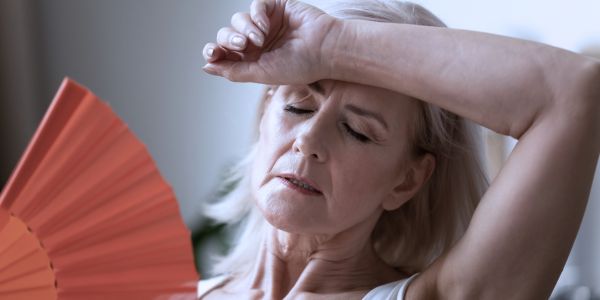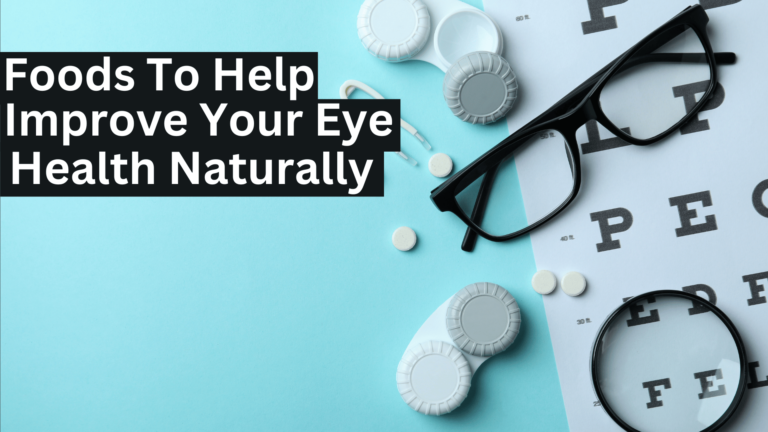Indicators That Menopause Is Progressing

Introduction
Menopause is a natural transition most women experience in their lifetime, but it can be elusive. Though some transformations are painfully evident, others may leave one wondering, “Is this supposed to happen?” Let us explore the different signs of this life-altering process.
The Changes in Physical State
1. Hot Flashes

Visualize this scenario: you are in a meeting, and out of nowhere, you feel like someone just turned on the heating because it’s even too much for the sun. That’s a hot flash, ladies. It’s more like waves of heat that can result in flushing, sweating, and reaching out for every possible fan.
- Frequency: This may happen several times a day or just once in a while.
- Duration: 30 seconds to a few minutes at most.
- Tip: Get yourself a compact fan and carry it in your purse all the time. Believe me, you will need it!
2. Hair Loss

Do you remember when the only hair trouble you had was split ends? Menopause may not be a good friend for other reasons. The most common side effect of menopause, according to many women, is hair loss, especially from the top of the head.
- Causes: Events related to pregnancy extend the hair growth cycle for a longer period than usual.
- Solution: No need to worry! When in doubt, consult your stylist—he has good ideas on volume-oriented cuts.
Also Read: 9 Common Mistakes You Are Making When Drinking Water
3. Dry Eyes

Many people suffer from soreness, redness, and tearing of the eyes. A sandiness in the eyes is also frequent and irritating, but not always dangerous. This is due to dry eye syndrome, which is becoming more common but is often ignored—sometimes mistakenly associated with bereavement and recovery.
- Symptoms: Itching, burning, or a sand-like feeling in your eyeballs.
- Pro tip: You’ll find eye drops or a prescription for them to be straightforward and useful for your condition.
4. Body Odor
Do you ever smell something and wonder why that person is sitting so close, only to realize, “Oh wait, that fragrance is coming from me?” Body odor can happen during menopause, with a phase where the body seems to sweat more than usual.
- Causes: Hormonal changes, along with those irritating and annoying hot flashes.
- Management: It’s time to explore new types of deodorants and perhaps switch to cotton clothing.
5. Insomnia

- Inability to initiate sleep.
- Interruption during sleep.
- Earlier-than-natural wakefulness.
Effects on Daily Activities:
- Drowsiness
- Irritability
- Inattention
If your bed has turned into a battleground where you fight a losing war against sleep, you’re not alone. Menopause can turn even the sleepiest of people into night owls and sleepless dreamers.
The Change in Emotional State
6. Mood Swings

One minute you’re laughing at a funny scene, and the next, you’re sobbing over a pet food commercial. Welcome to the chaotic world of mood swings during menopause.
- Triggers: Hormonal changes and life events.
- Coping Strategy: Find a quiet place to breathe, recite a mantra, or scream into a pillow—no judgment here!
7. Depression and Anxiety

Have you found it hard to smile lately? Or are you suddenly worried about things that never bothered you before? The menopausal transition may also be associated with the onset of depression and anxiety.
Here, we provides an overview of moods, feelings, or emotions that should be considered concerning: feelings of sadness, trouble sleeping, feelings of anxiety or worry, and lack of interest in normal activities.
When to Seek Help: Discuss these feelings with a healthcare professional if they persist or dominate your daily life.
8. Feelings of Confusion

If you’ve ever walked into a room with no idea why you’re there or blanked out on the right word to say mid-sentence, you might be experiencing what’s referred to as menopausal brain fog.
- Symptoms: forgetfulness, mental concentration problems, and periods of feeling mentally “fuzzy.”
- Coping Tips:
- Write down ideas (and then try not to lose them).
- Create routines for your work.
- Relax—menopause affects not just your body but also your brain.
Also Read: 9 Benefits of Olive Oil in Your Body
9. Migraines

Migraines can feel like a unique definition of “a headache.” Some women experience migraines more frequently during or after menopause.
- Causes: Hormonal imbalance can trigger or worsen migraine episodes.
- Management:
- Maintain a log of every migraine occurrence to identify triggers.
- Consult your physician about possible treatments for migraine symptoms.
- Make lifestyle changes when possible (diet, stress management, sleep).
Conclusion
Menopause is like being on a ride—exciting, frightening, and offering chances to reach new horizons. Please keep in mind that no two women go through the same process. If you do observe such symptoms, you may want to discuss them with your physician.
And hey, look on the bright side—no more periods, right? While going through this new phase, lend a hand to yourself. Pamper yourself with that bubble bath, go for that piece of chocolate, or sign up for that yoga class you’ve wanted to take for so long. You deserve it!
Latest Health Tips:
- 8 TOP Foods To Help Improve Your Eyes Naturally
- 4 Symptoms of Gallbladder Problems You Must Know
- 12 Common Warning Signs Of ADHD You Shouldn’t Ignore
- 11 Super Benefits of Eating Ginseng Every Day
- 10 Heart Healthy Foods After Age 50+ You Must Eat!
Yes, there are some changes brought about by menopause, but the essence of a woman does not change. You are still that wonderful and capable woman that you have always been—this time with more tales to share and perhaps a fan in your handbag.
Menopause is a biological process rather than a pathological condition. It is, however, a time of challenges but also a period of discovery. More importantly, remember that you are not the only one going through this. There are millions of women across the globe who are undergoing the same changes.
As we have gathered so far, hot flashes, mood swings, insomnia, and hair changes are all signs of this new chapter in your life. Gaining awareness of these symptoms is the very first step, which eventually leads to an effective treatment process.
- Listen to your body: Take note of the changes occurring in your body.
- Keep a symptom journal: Document your experiences and make them available to your healthcare provider.
- Schedule a check-up: Visit your doctor regarding the symptoms and explore the different options available.
- Reach out: Reconnect with your friends, family, or support groups. Sharing experiences can be highly beneficial.
- Prioritize self-care: Devote time to your physical and mental health.
The cessation of menstruation marks the end of a reproductive stage in a woman’s life, but not the end of an adventure. It is more of a transitional state that should be embraced with knowledge, support, and a positive mindset!




